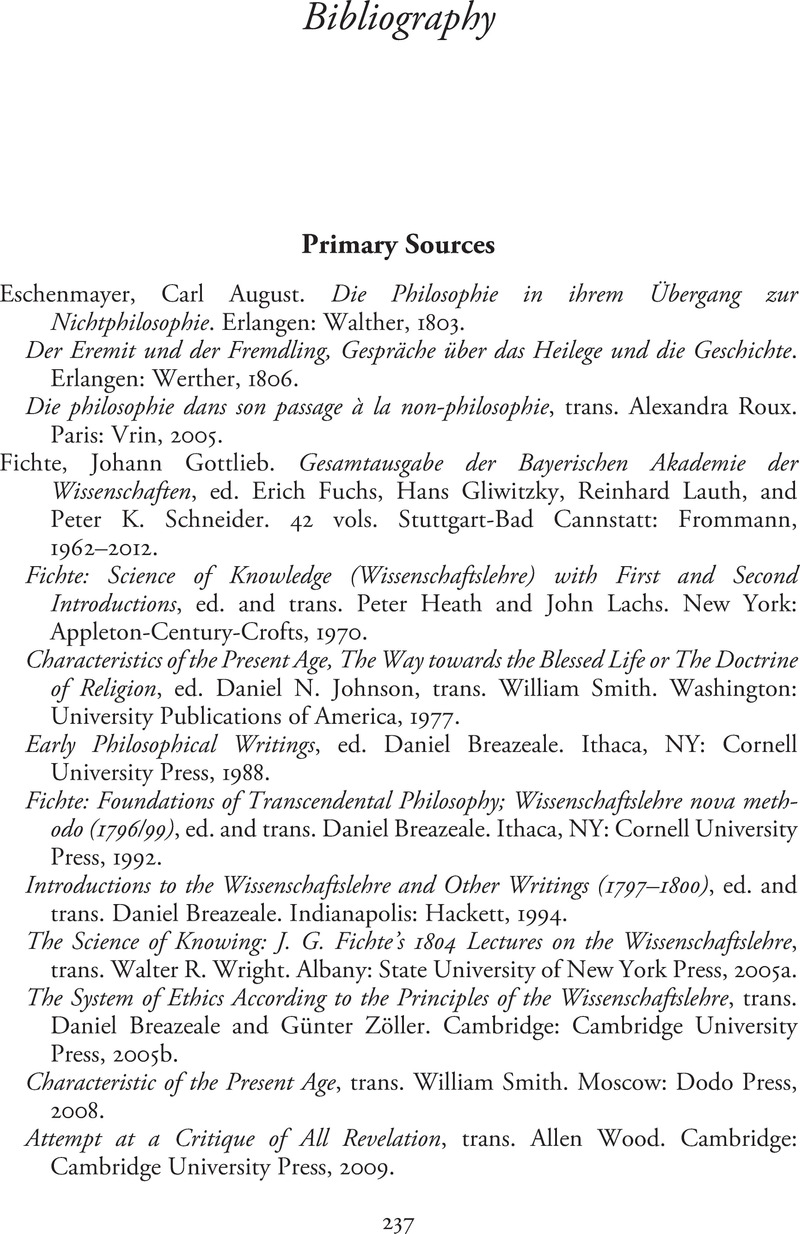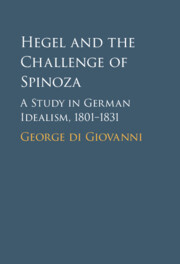Book contents
- Hegel and the Challenge of Spinoza
- Hegel and the Challenge of Spinoza
- Copyright page
- Dedication
- Contents
- Preface
- Abbreviations
- Chapter 1 Introduction: The Spinoza Connection, or the Discovery of “Feeling”
- Chapter 2 The Nature of “Nature” in Contention
- Chapter 3 The Transcendental Spinozism of the Wissenschaftslehre
- Chapter 4 Schelling’s Prophetic Spinozism
- Chapter 5 Schelling, Hegel, and Positivity
- Chapter 6 Of Things Divine and Logical
- Bibliography
- Index
- References
Bibliography
Published online by Cambridge University Press: 17 September 2021
- Hegel and the Challenge of Spinoza
- Hegel and the Challenge of Spinoza
- Copyright page
- Dedication
- Contents
- Preface
- Abbreviations
- Chapter 1 Introduction: The Spinoza Connection, or the Discovery of “Feeling”
- Chapter 2 The Nature of “Nature” in Contention
- Chapter 3 The Transcendental Spinozism of the Wissenschaftslehre
- Chapter 4 Schelling’s Prophetic Spinozism
- Chapter 5 Schelling, Hegel, and Positivity
- Chapter 6 Of Things Divine and Logical
- Bibliography
- Index
- References
Summary

- Type
- Chapter
- Information
- Hegel and the Challenge of SpinozaA Study in German Idealism, 1801–1831, pp. 237 - 243Publisher: Cambridge University PressPrint publication year: 2021



